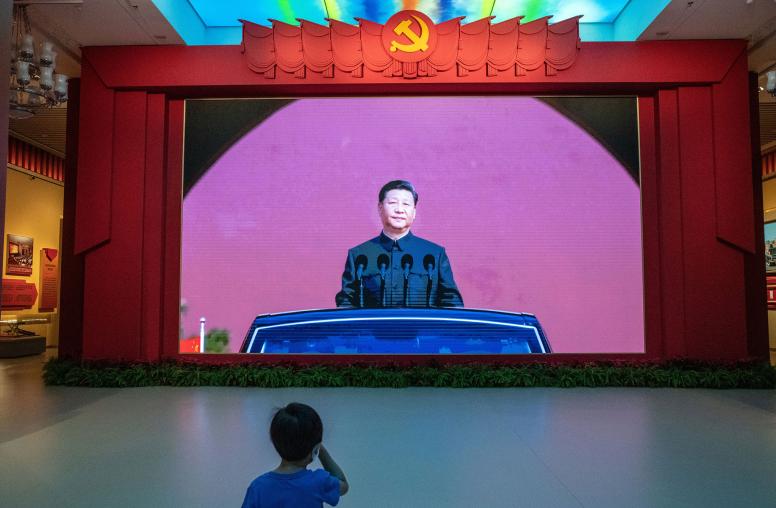Partisan Lines Fade in Congress on China, Panel Chiefs Say
A Bipartisan Congressional Dialogue with Rep. Rick Larsen (D-WA) and Rep. Darin LaHood (R-IL)
Bipartisan sentiment toward China has hardened over the past year in Congress, scrambling ideological lines as concerns grow more acute over democracy, trade, human rights, and national security, the co-chairs of the House U.S.-China Working Group said.

Representatives Rick Larsen and Darin LaHood agreed that the U.S. relationship with China is at a low point—and sinking—over a mounting set of converging crises: Beijing’s destruction of the ‘one country, two systems’ framework; perceived security threats to 5G networks from Chinese equipment; the internment of China’s Uyghur minority in labor and “re-education” camps; and uncertainties about China’s compliance with the Phase 1 trade deal, under which China committed to buying $200 billion of U.S. products this year.
Hovering over every issue today, the lawmakers concurred, is collective anger over China’s lack of transparency as the novel coronavirus emerged in Wuhan.
“A lot has changed since September,” LaHood, said, referring to the last time he and Larsen appeared at the U.S. Institute of Peace for a Bipartisan Congressional Dialogue event. “About 350 resolutions on China have been introduced in Congress since COVID-19 hit the United States,” he said, with bipartisan majorities going after China for its “deception.” As long as China “continues to put its head in the sand” on COVID, the current climate of animosity will not abate, he added.
China Hawks
Larsen said that for years he divided China skeptics in Congress and the executive branch into three groups: national security hawks; hardliners on economy and trade; and those concerned with human rights abuses and China’s extreme policies of social control. Democrats were cool to trade; Republicans focused on national security; and human rights tangled the lines.
Today, he breaks the hawks into “punishers” favoring sanctions, “decouplers” hoping to sever the Chinese and U.S. economies, and “salvagers,” who argue that despite China’s malign conduct, the world’s two largest economies must continue working on areas of mutual concern such as climate change and nuclear proliferation. There is no longer a clear partisan cast to any of the positions, he said, putting himself and LaHood in the salvagers camp.
LaHood suggested that hardline outrage regarding China’s conduct needs to be tempered with a dose of realism. While there’s wide discussion in Congress and the administration about decoupling economies and “onshoring” critical supply chains, implementing such moves would be complicated and difficult, he said. Supply chains of the world’s two largest economies are closely intertwined, and third-party vendors would be implicated in any attempt to sever economic ties. Is the government ready to subsidize U.S. companies as an incentive to abandon China, he asked? Some in the administration argue it can be done with tariffs, which he said he opposes. American companies are in China because it has a middle class of 500 million consumers, LaHood said.
“In the administration there are some real anti-China folks who would like to move to a Cold War, but we are not there yet.”
Need for Allies
Constraining China from any angle cannot be accomplished by just the United States, LaHood said.
“There are consequences to the go-it-alone approach that this administration has taken,” he said.
The Trans-Pacific Partnership, which President Trump pulled out of in January 2017, was a way to isolate China, he said. Absent the treaty, the U.S. needs to strengthen bilateral relations with India, Singapore, Vietnam, and other Asians nations, “but those things are taking a long time to do,” he said. The U.S. needs to work with allies in Europe that share the same concerns about China.
“I am frustrated with how this administration approaches natural allies and partners to solve world problems,” Larsen said. Citing Trump’s official notice this week that the U.S. will withdraw from the World Health Organization, he said, “Global problems don't go away even if even if the United States backs away from them.”



